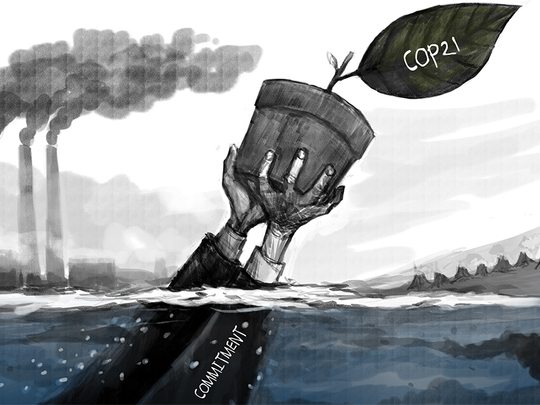
International climate talks have progressed in recent years at what the United Nations secretary-general has called a “snail’s pace”. The sheer complexity of reaching an ambitious international agreement has stymied the negotiations. That is why national legislation should be at the heart of the anticipated new Paris agreement to tackle climate change.
A country “commitment” put forward in Paris will be more credible — and durable beyond the next election — if it is backed up by national legislation. And this must ideally be supported by cross-party lawmakers who put in place a credible set of policies and measures to ensure effective implementation, and hold governments to account so Paris delivers.
There are good reasons to devolve responsibility to governments to deliver on this vital agenda. In contrast to the slow speed of international negotiations to combat global warming, national legislation is advancing at a very impressive clip.
In a report published in May by the Grantham Institute at the London School of Economics, which covers 98 countries plus the European Union states, which together account for 93 per cent of global greenhouse gas emissions, it was revealed that there are more than 800 climate-change laws and policies now in place across the world, rising from 54 in 1997. Since 1997, when the Kyoto Protocol was agreed, the number of such laws and policies has doubled every five years.
This fundamental shift in the centre of gravity of the climate change debate is one that few have yet recognised. And it challenges the conventional wisdom that progress on tackling global warming has waned in recent years.
It is thus increasingly clear that the agreement that looks likely to emerge in Paris will be driven by national legislation that is already in place.
And implementation of a deal will only be effective through national laws, overseen by well-informed legislators from all sides of the political spectrum.
That’s why the 11-point plan drawn up last year by the parliamentary assembly of the Council of Europe, which has 47 member states, calls for formal recognition of national climate legislation in the legally binding part of any Paris agreement.
The council’s bottom-up framework, which has been influential in international discussions, also advocates stronger involvement of parliaments so as to advance climate laws, disseminate best practice, build capacity and promote common approaches across countries.
Many countries now view the response to climate change as one of national self-interest
Far from undermining the UN talks process, this bottom-up approach has been a decisive development catalysing the prospect of a new comprehensive global deal in Paris.
Advancing domestic measures on global warming and experiencing the benefits of reducing emissions are crucial building blocks that have created the political “window of opportunity” to enable an agreement to now potentially be secured.
Many countries now view the response to climate change as one of national self-interest, and growing numbers of nations, across every continent of the world, are trying to maximise the benefits of global warming measures by embracing low-carbon growth and development and to better prepare for the impact of climate change.
This is a big shift from before when much of the political debate on global warming had been framed around narratives of sharing a global burden — with countries often trying to minimise their share. Lawmakers are thus a fundamental part of an effective strategy to tackle the world’s environmental challenges.
Along with governments, they can now help co-create, and follow through to implement, what could be a foundation of global sustainable development in coming decades for billions across the world. But lawmakers still have much work to do. As a October 30 report published by the UN has concluded, these national laws, and future commitments that will be made at Paris, are not yet enough to limit global average temperature rise to 2 degrees Celsius above pre-industrial levels — the level scientists say we must not breach if we are to avoid the worst risks of global warming.
While this is disheartening, these national-level actions are putting into place the legal frameworks necessary to measure, report, verify and manage greenhouse gas emissions. The ambition must therefore be that these national frameworks are replicated in even more countries and ratcheted up in coming years.
Legislators must be at the centre of international negotiations and policy processes. They have shown themselves to be nimble and pioneering at advancing climate measures — and those may prove to be indispensable qualities in the fight against climate change.
— Guardian News & Media Ltd
John Prescott is a British Labour party politician and former deputy prime minister of the United Kingdom. Andrew Hammond is an Associate at LSE IDEAS (the Centre for International Affairs, Diplomacy and Strategy) at the London School of Economics.












